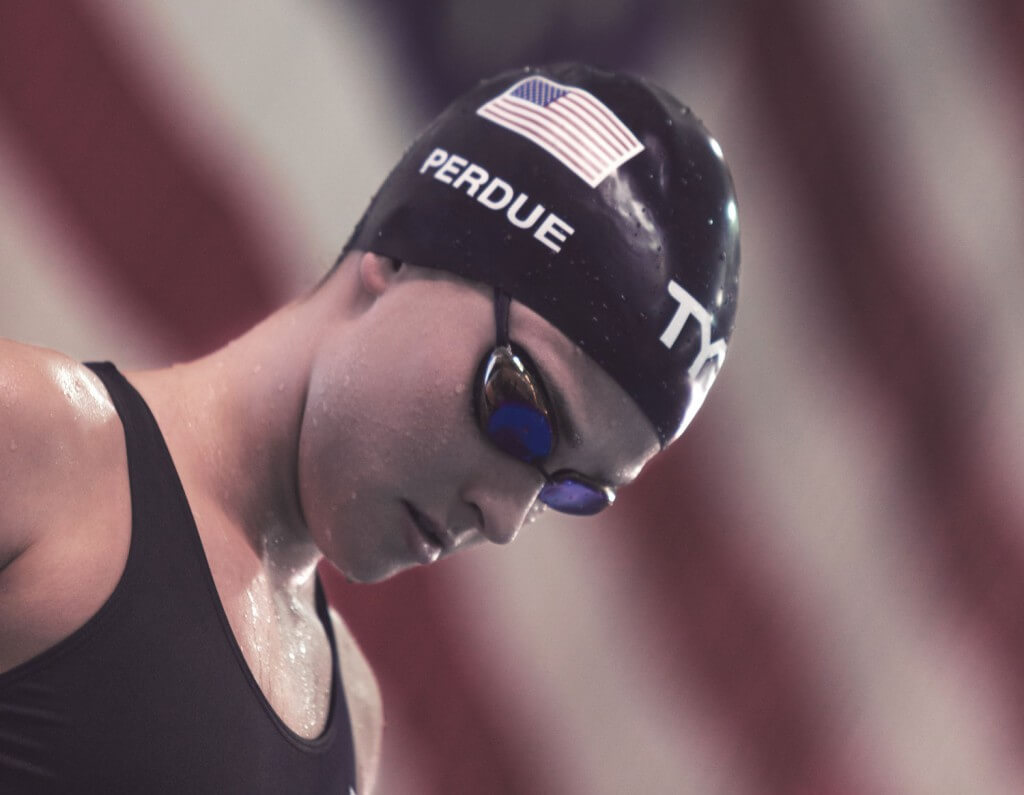8 Mantras to Help Overcome Injury

By Annie Grevers, Swimming World Staff Writer
“Why did this have to happen to me now?” so many swimmers ask when they find out that nagging pain is something serious. Or when they prove they are not land animals and break a bone without the cushion of chlorine water around them. Or when they are diagnosed with a condition which forces them to rest…which swimmers despise. Unless, of course, they are tapering.
Enduring injury can take a toll on you mentally. Watching teammates stroke the days away with those coveted healthy bodies can make you feel like you’re stuck in the mud on the race track, being lapped by your competitors. When you are able to return to the pool, the climb is testing and humbling.
Below are 8 mantras recognizable and not-so-recognizable names used to motivate them as they sought to be even better than they were before injury struck…
1. Sarah Henry, 2015 NCAA Champion in 400 IM for Texas A&M
Injury: Tore ACL, MCL and meniscus twice in two years (2009, 2011)
“If a man is called to be a street sweeper, he should sweep streets even as a Michaelangelo painted, or Beethoven composed music or Shakespeare wrote poetry. He should sweep streets so well that all the hosts of heaven and earth will pause to say, ‘Here lived a great street sweeper who did his job well.’” – Martin Luther King Jr.
Basically be the best you can be with the hand that you are dealt. I always live by this…everything I do, I give 100 percent to it.
2. Lauren Perdue, 2012 Olympic gold medalist (4×200 free relay)
Injury: Broke back, then underwent surgery three and a half months before 2012 Olympic Trials
There was a Bible verse that really helped get me through the injury and remain positive:
“For I know the plans I have for you,” declares the Lord, “plans to prosper you and not to harm you, plans to give you hope and a future.” Jeremiah 29:11
3. Jack Brown, 2008 & 2012 Olympic Trials finalist
Injury: Broke hip in December of 2011, seven months before Trials
Everyone associates injuries with the concept of mental toughness and resiliency. A lot of people think resiliency just means coming back. But what’s the point in that? Why go through all of that hardship to just come back as good as you were before. Resiliency is not about coming back, but rather admitting that we are shaped by our experiences, and that we can turn these experiences into something that can help us become a better version of ourselves; that can help us grow. Real resiliency is like a blade forged in fire. After being beaten by the hammer of life (or injury in this case), we can let it break our spirits; or, like a blade, it can make us harder and stronger. It’s up to each athlete what they do in the face of their injury. It can either control them, or they can control it.
4. Spindrift Seeligson (Beck), former University of Texas swimmer
Injury: Suffered from chronic back injury (SI joint dysfunction)
I just tried to tell myself to focus on what I could do rather than what I couldn’t. If I couldn’t kick for a practice, then I could pull. If I couldn’t lift hard weights, then I’d go do 20 minutes of extra cardio. Mentally, reminding myself that I was still accomplishing something in terms of training (even if it wasn’t the same as my teammates), instead of letting myself stress about the things I couldn’t control with my injury- that was the most helpful.
5. Holden Bank, long-time U.S. Masters Swimmer
Injuries: Tore left MCL, underwent both A/C joint (shoulder) decompression surgeries and torn rotator cuff (supraspinatus) surgery
“You can’t fall out of the basement,” meaning the good news is ahead of you, as there’s only one way to go. Also, ”All good things take time, so listen to your body.” It seems to be a very difficult thing to do, particularly with multi-sport athletes, but also with those of us who are used to pushing it when we practice. As you age, you can do so much more damage than good by trying to come back too soon, or do that breaststroke kick when your knee, groin or lower ab muscles aren’t cooperating.
6. Caroline Kosciusko, former swimmer at Springfield College (MA)
Injury: Spiral fractured her third metacarpal (hand)
Don’t look at it as a setback, but that it happened so you could work on on a different aspect in training. Take that time and use it wisely to strengthen another area in your life, whether it be physical or mental.
7. Sara Elizabeth Hobbs, former Arizona club swimmer and coach, current open-water/triathlon competitor
Injury/Setback: Thoracic Outlet Syndrome, permanent nerve damage, Reflex Sympathetic Dystrophy
Following the news of Amy Van Dyken’s accident- listening to her drive, motivation and unbreakable spirit, I went to the gym determined to get back in the water. It’s about mindset and determination. Pushing limits and boundaries, while still listening to your body. No one can break your spirit but you. It’s finding your motivation and taking it day by day.
8. Patrick Simpkins, former Stanford swimmer, Pepperdine law student
Injury: Dislocated knee cap, tore my MPFL, and clipped a meniscus during dryland
Laugh as much as possible. Recovery is more mentally draining than physically. Laugh when you can, and you’ll be able to push through. Especially if you dislocated your knee cap while skipping.




I hope Ashley reads this